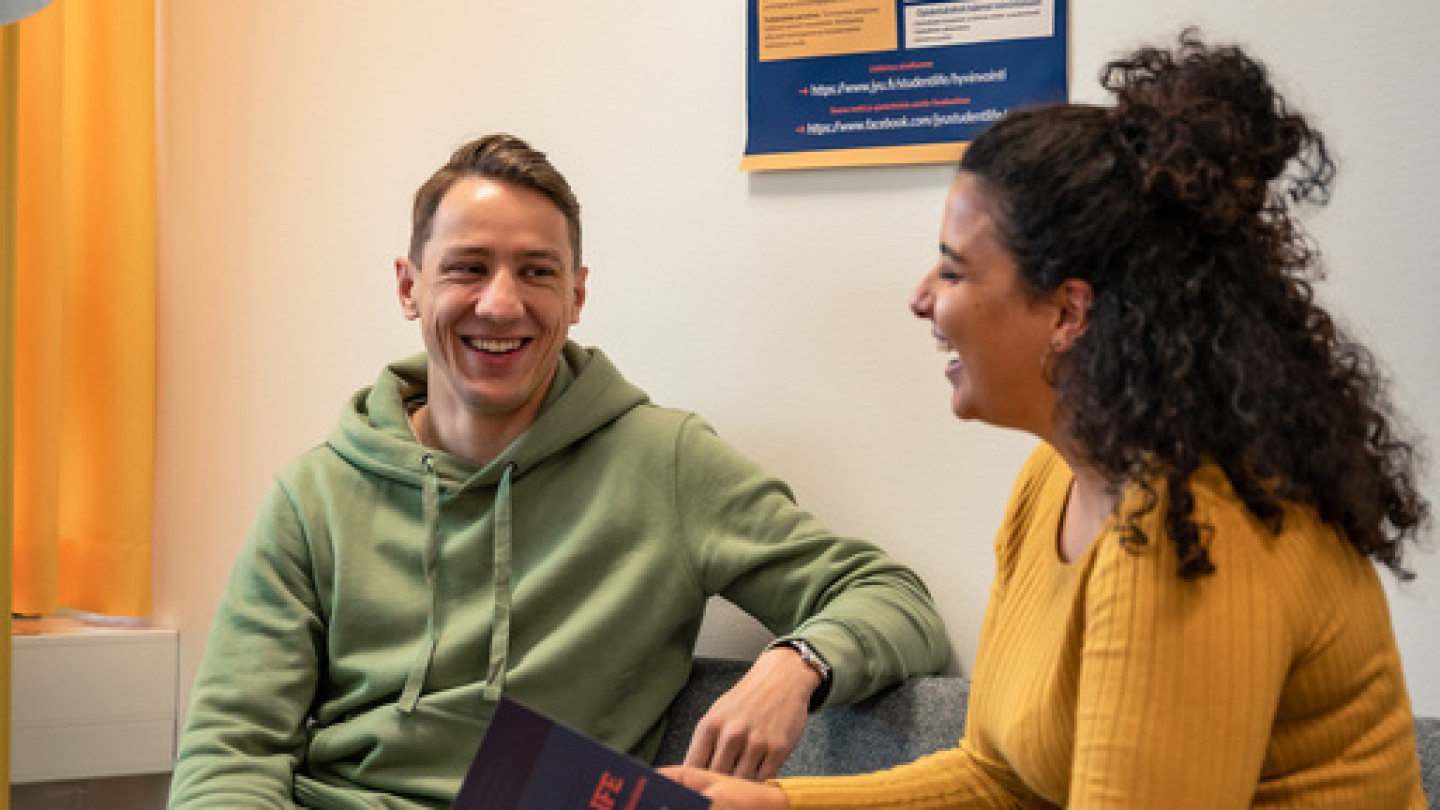The Universities of Jyväskylä and Tampere collaborate to strengthen students' mental well-being

According to a recent research study by the national Finnish Student Health and Wellbeing Survey (KOTT), one in three university students suffer from symptoms of anxiety and depression. Psychological symptoms among students have increased significantly in recent years, particularly with the corona pandemic, and are far more prevalent than in the rest of the adult population.
Both the University of Jyväskylä and the University of Tampere have long recognized the need to provide students with effective, timely, and low-threshold services on campus. One such low-threshold service is the Student Compass (OK), a web-based well-being and life-skills program that has been developed and extensively researched at the University of Jyväskylä since 2011.
OK enables students to improve their mental wellbeing and practice psychological, emotional and social skills that are important in studies, work, relationships and life in general. The results of program’s effectiveness, acceptability and usability have shown that the program significantly increases students' psychological, emotional and social well-being, life satisfaction, self-confidence, mindfulness skills, psychological flexibility and skills to deal with stress, anxiety and depression (Räsänen et al., 2016).
The Student's Compass takes into account students’ individual needs
According to Panajiota Räsänen, project researcher and developer of the Student's Compass, students' needs vary and are multifaceted. There is no one size that fits all.
"While self-help options may be sufficient for one student, another might benefit from one-to-one discussions and supportive individual guidance from a wellbeing coach. A third student needs peer support from fellow students, while a fourth student may need more targeted and specialized support from a professional. While developing the Student Compass program, all these options were carefully examined" says Räsänen.
Students at the University of Jyväskylä can use the program either independently (self-help), with the support of wellbeing coaches or under the guidance of enhanced counseling psychologists. International students can use the program in English, German or Italian and practice in the program as part of a wellbeing course. The wide range of support has been effective in reaching students: last year, almost 600 individual counselling sessions were offered and more than 700 group sessions were held, blended along with the online program.
The program's wellbeing coaches are trained Master's degree students in psychology and special education, providing invaluable coaching support to other students and a unique opportunity to develop their professional skills even before graduation.
Tampere University’s experiences of the Student Compass
Based on these positive experiences, the University of Tampere (TAU) bought the rights to use the Student Compass in Spring 2020. At TAU, students can use the Student Compass as a stand-alone online program or as part of wellbeing courses, in which they can receive coach support. So far, 400 students have completed the courses. In spring 2022, the online program was also available in English for international students.
Participants’ experiences have been positive. Almost 90% of TAU’s course completers recommend the use of OK to peer students. More than 76% of the students, reported that they have made concrete changes in their daily life as result of using the program.
Sonja Pelkonen, who is a student psychologist at the University of Tampere, is pleased that people are now talking more openly about wellbeing and mental health problems. Students are also better able to seek support and help if they are worried about something in their studies. This is reflected in their interest in counseling services and study skills lectures.
"Students also want to develop their well-being skills in a preventive way. This is a need that has to be addressed through the principle of early intervention and by providing a variety of tools to support self-development. It is always worth investing in well-being - not just when problems arise. It's great that the Student Compass is available 24-hours a day!" says Pelkonen.
Cooperation between the University of Jyväskylä and the University of Tampere continues
In the future, the aim is also to carry out research between the two universities to deepen understanding of processes in student well-being. "The better we understand the processes that explain changes in well-being, for example, the more effective support we can offer students. It's fascinating to be able to work in a research collaboration with experts at JYU who have long experience in identifying such change processes," say Elina Vierikko and Mervi Vänskä, who are among the TAU staff developing the research collaboration.
The Student Compass collaboration has been led by project researcher Panajiota Räsänen, Senior IPR Advisor Riikka Reitzer, IT-specialist Rikupekka Oksanen, and professor Raimo Lappalainen from the University of Jyväskylä and educational psychologist Sonja Pelkonen, university lecturer Mervi Vänskä, university lecturer Elina Vierikko, and Head of support services for counselling Suvi-Päivikki Ikonen from the University of Tampere.
More information:
Panajiota Räsänen, panajiota.rasanen@jyu.fi
Sonja Pelkonen, sonja.pelkonen@tuni.fi
